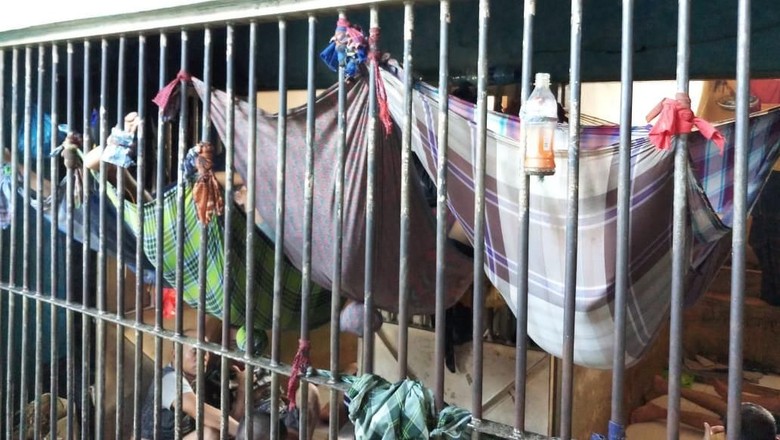The overcrowding in Indonesia’s prison system is at near crisis levels. Sadly, a homophobic warning recently given by a government official may be one of the few things that could get Indonesians to pay attention to the problem (if for the wrong reason).
According to the official from the Ministry of Justice and Human Rights, which oversees the country’s penitentiary system, inmates in the province of West Java have been doing “deviant” sexual acts with each other as a result of overcrowded prisons.
“It’s like this, [the overcrowding] results in feet touching feet, head meeting head and bodies meeting bodies. The result is the emergence of homosexuals and lesbians,” Liberti Sitinjak, head of the ministry’s West Java office, said in Bandung today as quoted by Detik.
According to Liberti, the province’s prisons have a capacity to hold 15,658 inmates, but 23,681 are currently being incarcerated. He said he believes that the inmates have no choice but to use each other to fulfill their biological needs.
Liberti says an obvious solution is to rehabilitate instead of incarcerating convicts who committed relatively lighter crimes, such as drug users, who make up around 60% of the province’s prison population.
Blatant homophobia aside (and he certainly is not the first Indonesian official to openly discriminate against and spread misconceptions about the highly stigmatized LGBT community), Liberti’s proposed solution is one that is being considered to solve the prison overcrowding problem nationwide.
In January, photos showing extreme overcrowding in Indonesian prisons — in which many inmates were forced to sleep in hammocks fashioned out of sarongs — highlighted just how severe the problem is. According to Minister of Justice and Human Rights Yasonna Laoly, the official total holding capacity of all Indonesian prisons is 123,025 but there are nearly double that number of inmates, 246,389, currently in holding throughout the country.
Like Liberti, some lawmakers have called for a revision to Indonesia’s criminal code to provide alternatives to incarceration for narcotics violations.
It should also be noted that while many Indonesian prisons are far overcapacity, the penal system’s pervasive corruption has also created a problem at the other end of the scale in which wealthy corruption convicts have been found to be incarcerated in “cells” more akin to luxury hotel rooms, complete with amenities such as refrigerators, aquariums and private keys.




